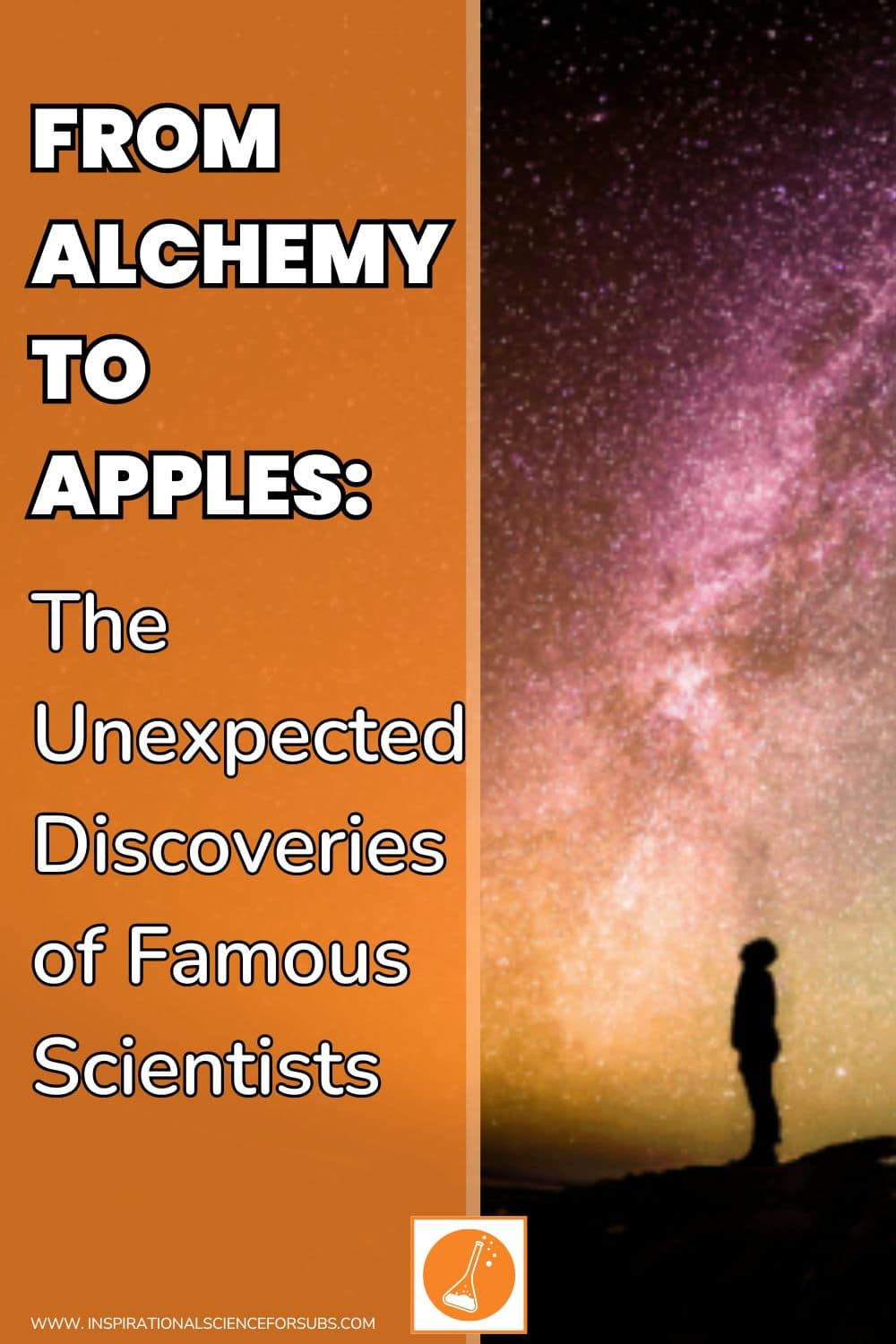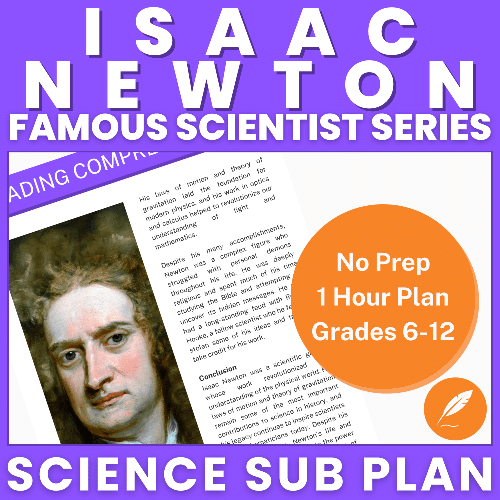The Quest for the Unexpected
Ever wondered how some of the world's most famous scientific discoveries came about? From alchemists accidentally stumbling upon new elements to tech geniuses creating gadgets that would change the world, the path to greatness is often paved with unexpected twists and turns. Get ready to delve into the tales of brilliant minds who dared to explore the unknown, only to uncover groundbreaking findings that left the scientific community scratching their heads in disbelief. Trust me, you won't want to miss out on these mind-boggling stories...
More...
Famous Blunders with Lasting Impact
You know that saying, "Mistakes happen"? Well, in the world of science, some of the most colossal blunders have led to groundbreaking discoveries that have left an indelible mark on our understanding of the universe.
Penicillin: A Moldy Mishap
Ever heard of Alexander Fleming? This Scottish scientist was just minding his own business, trying to grow bacteria cultures in his lab when he stumbled upon a petri dish that had been contaminated by a strange mold. Instead of tossing it aside, Fleming's curious nature led him to investigate further, ultimately leading to the discovery of penicillin – the world's first widely used antibiotic, saving countless lives in the process.
Check out our Alexander Fleming lesson plan on TPT - complete with Reading Comprehension, a WebQuest, Case Studies and Debate Topics!
The Microwave Oven: A Radar Surprise
Percy Spencer was an American engineer working on radar sets during World War II when he noticed something peculiar – a chocolate bar in his pocket had melted! Intrigued, he conducted a few experiments and realized that the melting was caused by the radio waves emitted by the radar equipment. This happy accident paved the way for the invention of the microwave oven, revolutionizing the way we heat and cook our food today.
These accidental discoveries remind us that even the most brilliant minds can stumble upon greatness when they least expect it. Sometimes, the key to unlocking scientific breakthroughs lies in embracing the unexpected and having the courage to explore the unknown.
Check out our Microwave Radiation lesson plan on TPT - complete with Reading Comprehension, a WebQuest, Case Studies and Debate Topics!
From Kitchen to Cosmos: Everyday Discoveries
While some groundbreaking discoveries happen in high-tech labs, others stem from the most ordinary of places – like your very own kitchen or backyard. Don't believe me? Well, you're in for a treat!
The Accidental Microwave
Remember Percy Spencer and his molten chocolate bar that led to the microwave oven? Well, that's not the only culinary mishap that changed the course of history. In 1945, Percy Julian, a pioneer in the chemical synthesis of medicinal drugs, was attempting to extract a compound from soybeans when he accidentally created a mind-blowing foam that could withstand incredibly high temperatures. This accidental discovery eventually led to the development of synthetic polymer products like Teflon, revolutionizing the world of cookware and beyond.
Check out our Isaac Newton lesson plan on TPT - complete with Reading Comprehension, a WebQuest, Case Studies and Debate Topics!
An Apple a Day...
...might just change the course of gravity itself! Okay, that's a bit of an exaggeration, but the story of Sir Isaac Newton and his legendary apple is a classic tale of how everyday observations can lead to monumental revelations. As the story goes, an apple fell from a tree, bonking Newton on the head and prompting him to contemplate the nature of gravity – a concept that would go on to shape our understanding of the universe for centuries to come.
From the humblest of beginnings, these unexpected discoveries remind us that scientific breakthroughs can happen anywhere, even in the most familiar of settings. So, the next time you're whipping up a batch of cookies or gazing up at the stars, keep your eyes peeled – you never know what serendipitous surprise might be waiting just around the corner!
Famous Scientists: Trailblazers in History
No Prep Lesson Plan
Unleash the inner scientist in your students! This extraordinary bundle ignites curiosity with five, action-packed lesson plans on some of history's brightest minds.
Includes Sir Isaac Newton!
The Power of Observation: Seeing Beyond the Expected
You know that old saying, "Look before you leap"? Well, in the world of science, some of the greatest minds have taken that advice to heart – and their keen observations have yielded astonishing results.
The Butterfly Effect
Have you ever heard of the "butterfly effect"? This concept, coined by meteorologist Edward Lorenz, suggests that even the smallest of actions can have far-reaching consequences. And it all started with a simple observation of weather patterns. While studying air flow models, Lorenz noticed that minuscule changes in initial conditions could drastically alter the long-term forecast. His findings not only revolutionized the field of chaos theory but also highlighted the importance of paying attention to the tiniest of details.
The Stellar Substance
Speaking of tiny details, let's talk about a discovery that was quite literally out of this world. In the 1920s, astronomer Cecilia Payne-Gaposchkin was studying the composition of stars when she made a groundbreaking observation: stars are primarily composed of hydrogen and helium, contrary to the prevailing belief at the time. Her meticulous analysis of stellar spectra paved the way for a deeper understanding of the universe's chemical makeup and the processes that govern stellar evolution.
These examples remind us that sometimes, the most profound discoveries arise from the simple act of observing the world around us with fresh eyes and an open mind. So, the next time you find yourself lost in thought, take a moment to really look at the world – you might just stumble upon something extraordinary.
From everyday mishaps to groundbreaking inventions! Explore the fascinating world of accidental scientific discoveries. #ScienceIsCool #ScienceHistory #FamousScientists @inspirationalscienceforsubs
The Ripple Effect: How Unexpected Discoveries Shape the Future
Every groundbreaking discovery, no matter how small or accidental, has the potential to send ripples through the scientific community and beyond, shaping the future in ways we can scarcely imagine.
The Butterfly Flaps Its Wings
Remember the butterfly effect we discussed earlier? Well, it's a prime example of how one unexpected observation can have far-reaching consequences. Lorenz's findings not only laid the foundation for chaos theory but also influenced fields as diverse as weather forecasting, computer science, and even economics. Who knew that a simple study of air flow patterns could have such a profound impact on our understanding of the world?
The Unexpected Gift That Keeps on Giving
Speaking of ongoing impact, let's talk about penicillin – the accidental discovery that continues to save millions of lives to this day. Fleming's chance encounter with a moldy petri dish not only led to the development of the first widely used antibiotic but also paved the way for countless other medical breakthroughs. From new antibiotics to cancer treatments, the ripple effect of this unexpected finding has been nothing short of extraordinary.
These stories serve as a reminder that even the most seemingly insignificant discoveries can have far-reaching and long-lasting effects, shaping the course of science and our understanding of the world around us. So, the next time you hear about a breakthrough, remember – it might just be the start of something bigger, something that could change the future in ways we can't even begin to imagine.

Enjoyed the article?
Summary: Embracing the Unexpected in Science
As we've explored, the path to scientific discovery is rarely a straight line. From accidental spills and moldy petri dishes to serendipitous observations and happy accidents, some of the most groundbreaking findings have arisen from the most unexpected of places.
So, what's the takeaway here? Well, it's simple: Keep an open mind and embrace the unexpected, because you never know where the next great discovery might be lurking.
Think about it – if the likes of Fleming, Spencer, and Newton had dismissed their peculiar findings as mere flukes, we might have missed out on life-saving antibiotics, the convenience of microwave ovens, and our fundamental understanding of gravity itself.
The beauty of science lies in its ability to surprise us, to challenge our assumptions, and to reveal the wonders of the universe in ways we never could have imagined. So, the next time you encounter something unexpected, don't be afraid to dive in and explore it further. Who knows? You might just stumble upon the next big thing!
And on that note, I'll leave you with one final thought: the greatest discoveries are often found in the most unexpected of places. So, keep your eyes peeled, your mind open, and your sense of wonder alive – because the next scientific revolution might just be waiting around the corner, disguised as an ordinary accident or a casual observation. Are you ready to embrace the unexpected?



